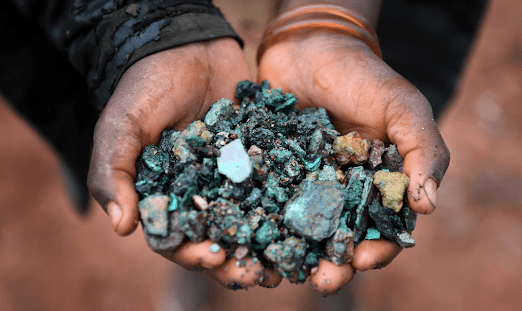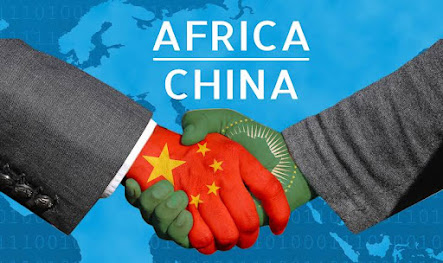Revision of mining contracts in the DRC, what the future may hold?
Since last month, the DRC’s mining environment has been buzzing with the revision committee put in place by president Tshisekedi’s cabinet to revisit the Tenke Fungurume Mining (TFM) contract. Announced in May 2021 during his visit in the Katanga Province, I for one didn’t believe that revision will go through due to the uncertainty that such a complex process could lead to.
With the revision committee in place, it’s time to rethink the situation and see what may come out of this process.
Let say it from the get-go: as it stands, it’s almost impossible to know with certainty how this situation will unfold. The complexity of the internal Congolese political environment (which shapes the motivations and actions of political actors) and the involvement of international actors (governments and lobbies) do not allow us to make any solid predictions.
Instead of seeing this piece as an attempt to predict the future, let's rather take it as a prospective thinking exercise about what may happen.
I. What do we know?
- In May 2021, Tshisekedi had announced his willingness to revisit mining contracts that he felt did not benefit the DRC. Although the announcement did not name anyone in particular, the Chinese, who control large portions of the DRC's copper-cobalt sector, were perceived to be the main target.
- In June 2021, Afrewatch published a report on the 2008 Sicomines agreement - “mines for infrastructure”, which pointed Sicomines' failure to fulfill its contractual obligations to the Congolese government.
- At the announcement of the revision process in May, the Chinese ambassador to the DRC made a tweet warning against the attempt of making DRC and Africa the battlefield for great powers.
- In August 2021, Tshisekedi's cabinet decides to put in place a review committee for the TFM project that China Molybdenum acquired in 2015 from the American Freeport McMoran. The choice of TFM is somewhat surprising, especially since TFM appears to have a solid contract, reviewed in 2010 by Freeport and the Congolese government, and it has not been the subject of any particular criticism from Congolese civil society.
- In September 2021, Nicolas Kazadi, Congolese Finance minister, told Reuters that the Congolese government is also reviewing the $6 billion contract (Sicomines). So far, contrary to the TFM project, there’s no formal committee set up yet.
- In late August 2021, China Moly announced that it would reinvest $2.5 billion in its TFM project to increase production in a growing global market. Cobalt prices driven by the high demand of EV batteries are expected to reach new heights.
- Glencore's Mutanda Mining Project, the world's largest cobalt producer, is scheduled to resume operations in the last quarter of 2021.
I. What we don't know
- What does the Congolese government really want?
Whether it is the TFM project or Sicomines, the real objectives of the Congolese government remain unclear. The communiqué announcing the establishment of the review committee does not shed any light on this. Based on the term of that communiqué and the overall situation – internal politic and global market- we can assume the following options:
- The strict compliance with the terms of their contract.
When the TFM agreement was revised in 2010, among the amendment both parties had agreed upon, Freeport had agreed to increase the government’s royalty by “$1.2 million for each 100,000 metric tonnes of proven and probable copper reserves above 2.5 million metric tonnes”. So, planning to ramp up its production by injecting 2.5 billion $, China Moly is surely expressing confidence about its TFM operation. And rightfully so, in accordance with their agreement and as stipulated in terms of the decision creating the review committee, the Congolese government is expecting an increase of royalties based on the new proven and probable reserves of TFM.
- New terms
“Obsolescence bargaining” is one of the major challenges in the natural resources industry. In light of changes in the international market- high commodities prices- and the increase of mining companies’ investment, producing countries tend to revisit their initial contracts with mining companies in order to increase their shares and capture more revenues. Having invested billions, companies have limited options, they can negotiate or go to court.
And this is even more relevant for DRC and the cobalt industry. The country is home to 70% of the world's cobalt reserves with no real rival. With the long-lasting upturn in the cobalt market driven by increasing demand from the automotive industry, DRC’s authorities have more incentives to revisit their various agreements. Controlling the world's cobalt supply chain by controlling around 50% of the Congolese production ( Glencore’s Mutanda Mining on pause), will China have enough leverage to reject Congolese demands? – still to be known. Compared to TFM’s, the Sicomines deal is where Tshisekedi is expected to set high expectations. Indeed, negotiated and signed under opaque conditions by Kabila’s regime, it has been under scrutiny and criticism from Congolese and international civil society for several years. Recently, we have learned the existence of a fourth amendment to the contract that was never made public.
- Chinese out
This would be an extreme option for both parties as it would have immediate and long-term consequences for the whole industry. This option feeds out from the “US vs China” narrative. The US has been accused to be behind this revision process. As much as the “Us vs Chinese” narrative seems to be the main trending explanation about what’s going on, I do not believe there is an actual political will and determination from Tshisekedi to get rid of the Chinese. The move will be costly, risky, with no real short and mid-term gain for his regime. Two years before elections, engaging in a judicial battle with the Chinese would be costly. As much as the Chinese might not be ideal partners when it comes to good governance and good practices (who is anyway?), they remain the ones with the financial capacities and the internal political clout to do business in such murky and unstable environment like the D.R.Congo.
B. How far Tshisekedi is willing to go?
How far is the Congolese government willing to go and what leverages does it hold to prevail in these negotiations? The coverage of the FEC delegation's visit to mining sites in eastern DRC (Chinese, American, and others) has caused a general outcry on Congolese social media as well as in with the civil society, who are now calling for action. Although these small Chinese companies working in the East of the DRC have certainly nothing to do with the Chinese investment in Katanga, shortcuts are taken and the connection between the two is quickly made. And this comes at a time when several videos of Chinese nationals abusing local employees surfaced on the web. All these making the Chinese mining presence in the DRC a public debate; an embarrassing situation for them who generally prefer discretion when it comes to their dealings in Africa.
The government could use this rising public criticism to its advantage, even threatening to amplify it, to put more pressure on the Chinese.
However, this strategy can be a double-edged sword that can quickly backfire on Tshisekedi. After all the media hype, backtracking could be as politically detrimental as achieving no substantial changes in these contracts. But so far, the process is being handled directly by Tshisekedi’s office, maintaining a relative opacity as to the details and outcome of this review process.
III. What could be next?
- Compromise or resist
In view of the global environment, it is possible that the Chinese may concede on certain grounds, without putting up too much resistance, if they deem the Congolese claims to be well-founded and “reasonable". Maintaining and securing its presence in Congolese cobalt is a major strategic interest for Beijing. But if Washington's hand behind the whole process is proven, it is quite possible that the Congolese claims may be far greater than what Beijing could be willing to accommodate. So, in that case, what could be coming next?
Before going further, let’s keep in mind the complexity of the Congolese political arena. As mentioned above, elections are coming in 2023. By then, Tshiskedi’s regime and party will need money. As much as he got closer to Washington, he’s also aware that the US administration will not be so giving as the Chinese when the time will come. So, showing the US card is one thing, but going through with it until the end, is another story. Congolese politicians are more known for their ability to adapt than for their loyalty to a cause. So, Tshisekedi could easily be playing a game of poker with both China and the US, leveraging them against each other. However, I don't believe that in this case, we are dealing with the US administration per se but rather a third party (lobby?) that would have a lot to gain if things were to go in a certain direction; let's say for instance the Chinese stopping operations due to legal issues or them reaching an impasse with the Congolese government.
Using Eric Olander’s words, this whole process may turn out to be a “high profile shakedown” orchestrated by Tshisekedi to force the Chinese to pay up.
2. Glencore in the shadow?
However, if Tshisekedi decides to go through and push for a more aggressive stand against the Chinese, both parties may end up in courts looking ahead to a long costly legal battle that none of them is guaranteed to win. Such a situation could potentially hurt the international market and send it in limbo for a short period of time. If these legal proceedings have a suspensive effect on Chinese operations ( depending on targeted contracts) on the ground, combining the rising demand and shortage that would unfold, cobalt price would be expected to reach new heights.
In that context, China rivals, namely the Switzerland-based Glencore- the largest cobalt producer - which Mutanda project is scheduled to resume operation by the end of 2021 would undeniably be one of if not the biggest winner of this entire situation…if Tshisekedi doesn’t go after them too.
As I said from the beginning, the situation is too complex to know exactly how things will unfold in the coming weeks and months. Let’s wait and see.



Commentaires
Enregistrer un commentaire